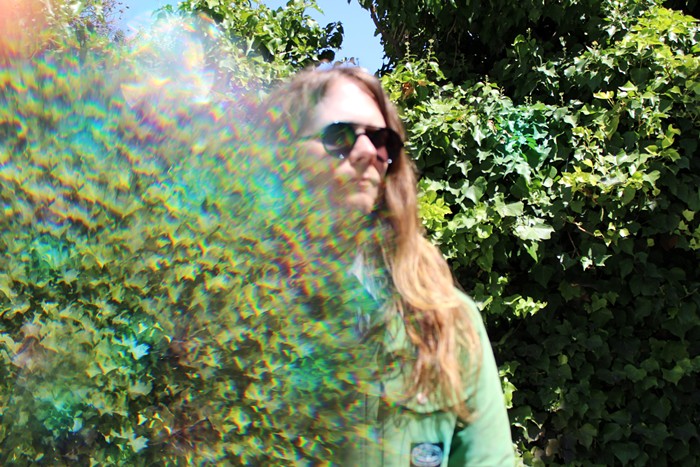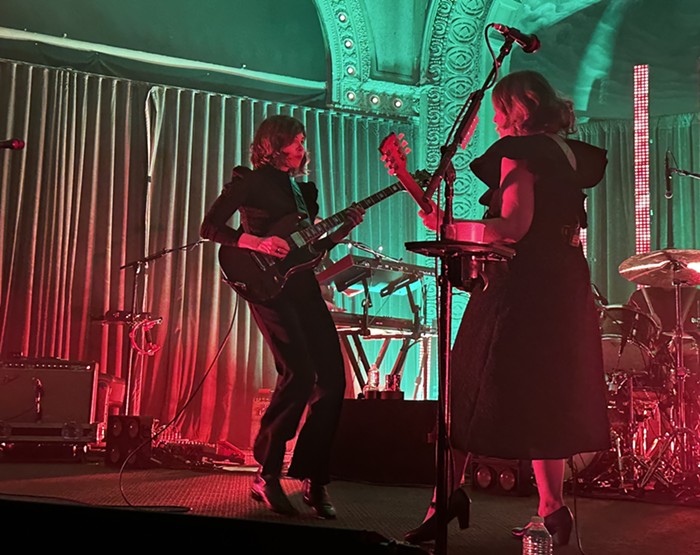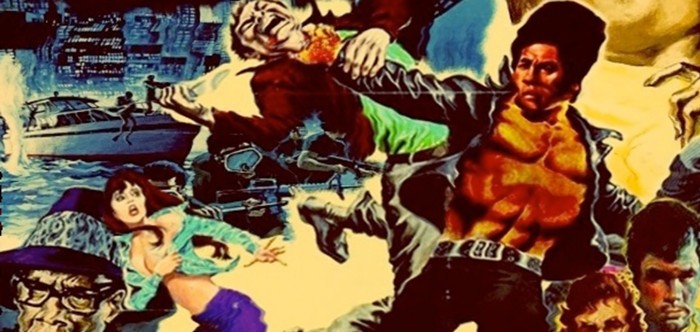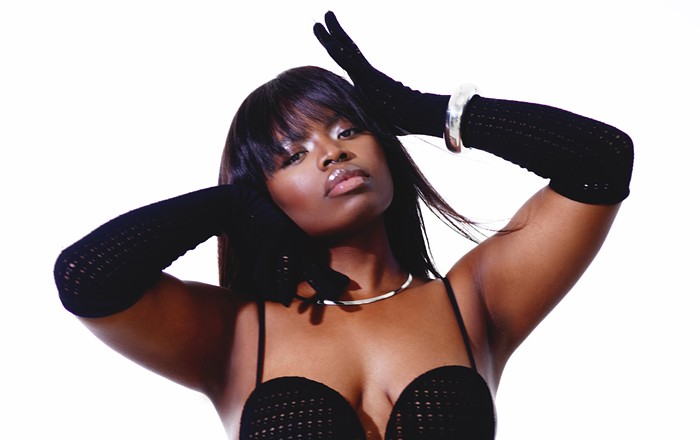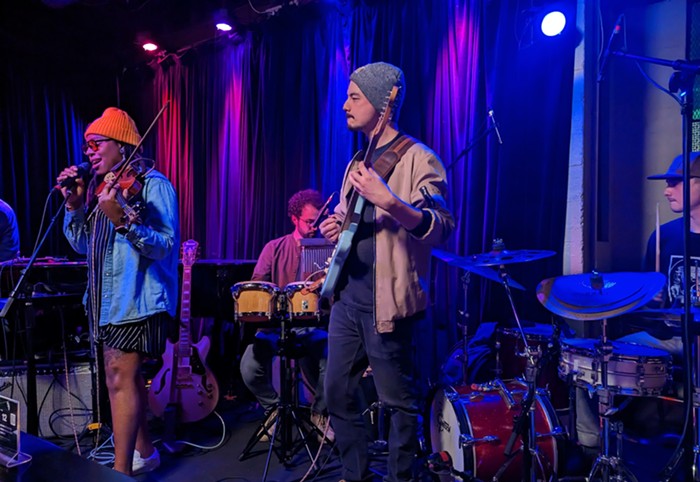BACK IN THE LATE '90S, Portland became an unlikely node in the global circuit of dub music. Dub is a derivation of reggae that came into prominence in Jamaica in the mid-'70s, whose key innovative feature at the time was the transformation of a recording studio into an instrument. Over the past four decades, dub—which strips a tune down to the bones of bass and drums, submerging these elements into a twilit sea of echoes—has gone through many mutations (the most recent of which is UK dubstep) and spread to the four corners of the world.
The reason why Portland was one such corner is BSI Records, a label that was owned by Ezra Ereckson, Tracy Harrison, and Josh Derry. BSI not only housed and distributed some of the best dub in the business (Henry & Louis, Jah Warrior, Alpha & Omega), but also represented the Northwest's only dub band, Systemwide, and its leading dubmeister, Alter Echo. Things fell apart in 2004 when the collapse of a European distributor left the label with thousands in unpaid debts. The death of the label was terrible news for dub in general and also for Portland.
Late last year, the ghost of BSI rematerialized as ZamZam Sounds—a label run by pretty much the same people (Ereckson and Harrison) that distributes many of the same bands (Alter Echo, Alpha & Omega, Henry & Louis). But this time around, the label is much more of an art project than a straight dub distributor. BSI had the feel of a commercial project, whereas ZamZam has the feel of a gallery whose world-class dubs are packaged in some of the most beautiful covers out there.
"At its simplest level," Ereckson wrote to me recently, "ZamZam Sounds really grew out of my wife Tracy's and my desire to make records again. Running BSI Records and doing all the art and design together in the late '90s into the '00s was a colossal amount of work, as in those days we were able to sometimes sell several thousand copies of a release on CD and vinyl. With Josh Derry, AKA Alter Echo (and partner Jason Lohr and publicist Ryan Michie), we were building something we actually thought we could make a living at. [When that didn't happen]... it took many years to get over that, both financially and personally. We said many times that we would never get into the label game again."
The reason why they came back? "We started to miss it, and more things started bubbling locally in terms of dub—with LoDubs, PDXindub, the VARIOUS party—and many in the scene never forgot BSI had, in a way, made Portland a real center of diasporic dub," Ereckson says.
"I also have a BFA in printmaking and did loads of screenprinting in my art-school days. Tracy also has a BFA, has a deep visual-art CV, and was BSI's lead designer... So when Tracy and I started talking about a new label, we knew right away that we wanted to do vinyl in very limited quantities, and we wanted to do hand-printing and have total control over the art and design—to take it back to our roots in terms of how we thought about releasing music. We wanted to create a cohesive body of work that was broad sonically (while all being firmly dub-rooted), but very tight visually and physically.
"So we settled on a consistent format: a single label design (black on silver, though the typography varies) and jackets designed by Tracy (as Polygon Press), tailored to the vibe of each specific release," Ereckson continues. "We also did not want to take the kind of financial risks we did with BSI, so 7-inch vinyl felt prudent and also appealed to us deeply as reggae and dub lovers from way back, feeling passionate about helping to keep this foundation format alive and vital. Finally, we were also very clear that we didn't want to deal with releasing music digitally. Our only concern would be physical, tangible, old-school vinyl. This keeps our job a little simpler, and it also benefits the artists that we work with, as they are free to do as they wish with their releases on formats other than vinyl."
A lot of the artists from the previous label returned. How did that happen? "We started by reaching out to BSI artists that we wanted to work with again, like Andy Scholes of Henry & Louis, Jah Warrior, and John Alpha & Christine Omega. We feel blessed that everyone we reached out to has responded enthusiastically; we were excited to reestablish these relationships, as well as to feature local dubbists like Strategy and help forward more recent crews like Xoki & Hieronymus, tapping into the ever-flowing waters of scenes like the one in Bristol."
The name ZamZam Sounds, Ereckson says, "refers to the well of Zamzam in Arabia that, in Muslim tradition, saved the lives of Abraham's lady Hagar and son Ishmael. Its waters still run today and are part of the hajj pilgrimage. We wanted a name that had that rootical, Old Testament heaviness, but as a Muslim, I wanted it to be grounded in my personal end of the larger Judeo/Christian/Islamic story. The symbol of a well just resonated perfectly with the kind of deep and hopefully timeless music we wanted to release, with the belief that humanity needs message music and that creativity springs from a source deeper than our incarnated selves."
With that, Portland is once again plugged into the global circuits of dub music.
As part of this week's Closer electronic music festival, Alter Echo plays Refuge (116 SE Yamhill) on Friday, June 21, and Ereckson (AKA E3) plays Closer's closing party at Sellwood Riverfront Park (SE Spokane & Oaks) on Sunday, June 23. Go to closerpdx.com for complete fest info.

